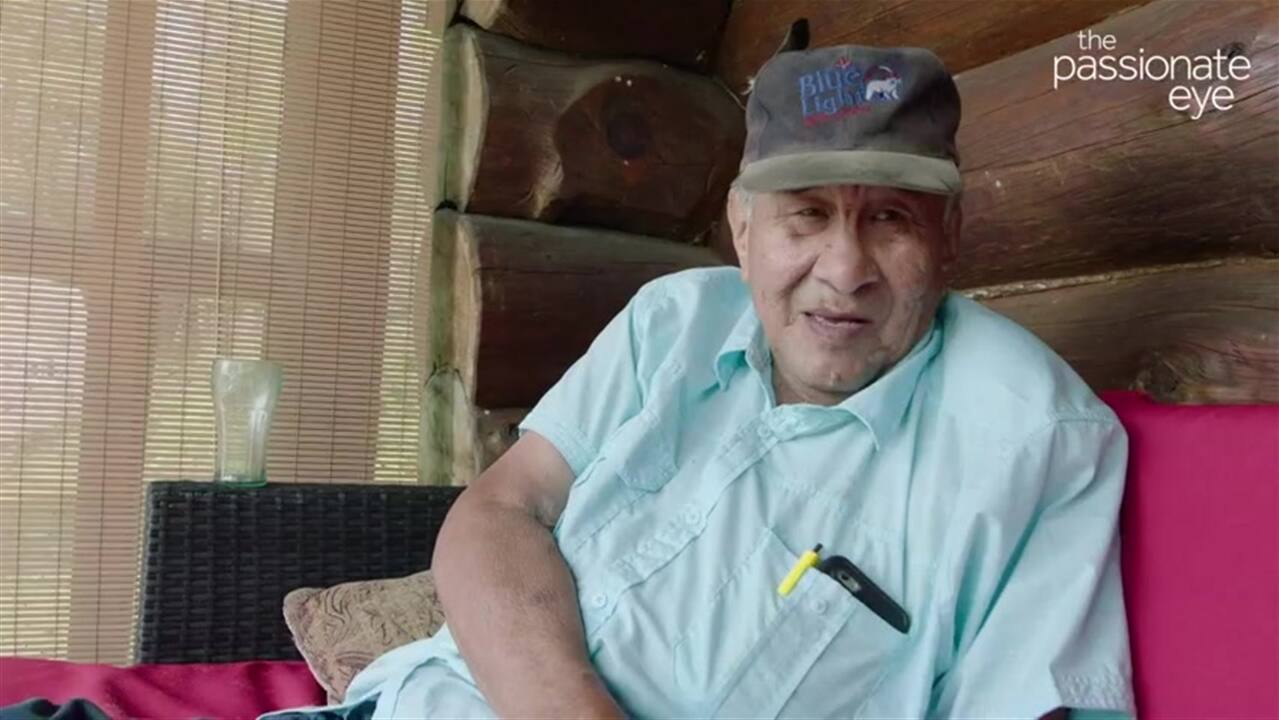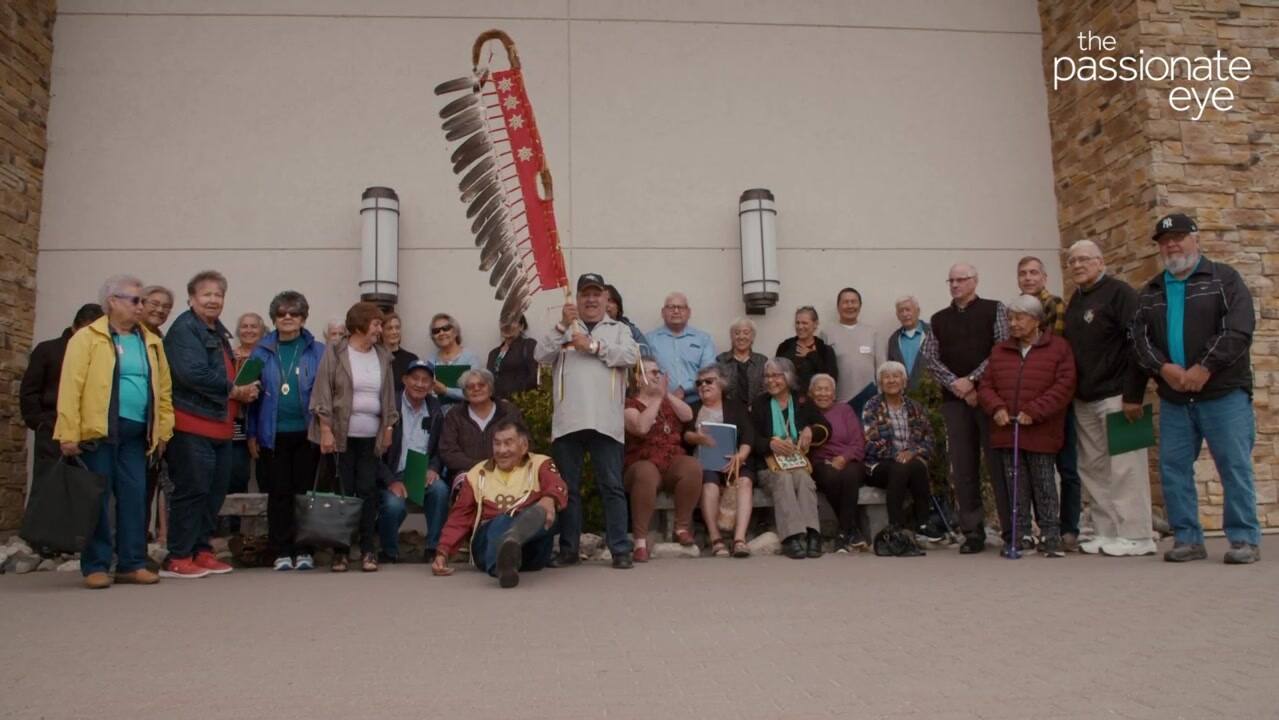A group of First Nations Elders is trying to ban glyphosate. They say it’s killing their way of life
Dr. Susan Bell Chiblow is an assistant professor at the University of Guelph in the Bachelor of Indigenous Environmental Science and Practice program. She is a volunteer with the Traditional Ecological Knowledge (TEK) Elders from the Robinson-Huron Treaty territory.
Mother Earth is our pharmacy, our kitchen, our university, and she provides us with everything.
– Willie Pine, Traditional Ecological Knowledge Elder
Nanaboozhoo, Susan Bell Chiblow nidizhnikaaz. Ogamah annag indigo. Ajijaak nidoodem. Ketegaunzeebeezing nidoonjibaa. Anishinaabe kwe endow. Ketegaunzeebeezing nindaa noogom. Robinson Huron Waawiindaagaagewin minwaa Anishinaabe aki indoojibaa.
My name is Susan Bell Chiblow. Everyone calls me Sue. I am Crane Clan from Garden River First Nation in the Robinson-Huron Treaty territory, which is part of the Anishinaabek territory.
In 2015, I stopped in to see Elder Willie Pine in Mississauga First Nation to see how he was doing. He told me that glyphosate was being sprayed in our territory and that he was working with Elders from the North Shore of Lake Huron in northern Ontario to stop it.
Glyphosate is a herbicide. It’s the active ingredient in products like Roundup — it’s used to kill plants and weeds. While glyphosate is banned for cosmetic use and sale in certain parts of Canada, it is one of the most widely used herbicides on lawns, in gardens and in forestry operations.
A number of scientific studies have shown that glyphosate can increase the risk of cancer. In 2015, the International Agency for Research on Cancer, a branch of the World Health Organization, classified glyphosate as a probable carcinogen.
Editor’s note: Bayer AG, the manufacturer of Roundup, denies that glyphosate causes cancer.
Glyphosate moves through plants and into their root systems, which means anyone or anything eating the plants and roots could get sick. When glyphosate is sprayed, it can be picked up by the wind and moved to other places; it can land in the waters.
The Elder asked me what I was up to. “Well, nothing really,” I replied.
He told me that I had to help (the lesson is that you never tell an Elder that you aren’t doing anything because they will give you something to do!).
Since then, I have been a volunteer with the Traditional Ecological Knowledge (TEK) Elders from the Robinson-Huron Treaty territory. I coordinate their meetings, draft letters to governments and provide other support.
Elder Raymond Owl is the founder of the Traditional Ecological Knowledge Elders group. They are fighting to stop the aerial spraying of glyphosate on tree plantations within the Robinson-Huron Treaty territory.
If it hurts one blade of grass, then it can’t be used.
– Ray Owl, TEK Elder
The TEK Elders hold expert Indigenous scientific knowledge of our traditional territories. Our knowledge systems tell us everything is connected — that we are related to the animals, the birds, the plants, to all life. We are kin and need to acknowledge that we depend on other beings for a healthy life.
The TEK Elders know that glyphosate is poisoning our land.
In forestry operations in and around the Robinson-Huron Treaty territory, glyphosate is used to kill trees that compete with commercially valuable species. It’s sprayed over recent clear cuts by air.
Only glyphosate is killing more than just plants. The TEK Elders say it is killing the birds and the animals, and poisoning the waters. Some studies have looked at how glyphosate affects animals and waters but more are needed. Also lacking are studies on how glyphosate affects Indigenous ways of knowing and being.
We know that if we poison the lands, we are poisoning ourselves.
The TEK Elders know that we are dependent on the health of the earth. In many areas of the Robinson-Huron Treaty territory, we cannot trust that the medicines and foods are not contaminated by glyphosate. Our way of life comes from the lands, and if the lands are sick, then we will be sick.
Editor’s Note: Bayer AG maintains that the levels of glyphosate sometimes found in food are incredibly small and nowhere near any level of concern, and that glyphosate poses no unreasonable risk to the environment.
What we do to the land, we do to ourselves.
– Ray Owl, TEK Elder
Elder Raymond Owl is one of the founders and lead elders of the TEK Elders group. He is from Sagamok Anishnawbek First Nation. He is a residential school survivor.
Elder Ray and the TEK Elders are featured in the documentary Into the Weeds: Dewayne ‘Lee’ Johnson vs. Monsanto Company, which tells the powerful story of Dewayne ‘Lee” Johnson’ a former Bay Area groundskeeper who took on Monsanto after a terminal cancer diagnosis. Monsanto was acquired by German pharmaceutical giant Bayer AG in 2018.
Footage from a 2019 TEK Elders meeting. “All of our insects are dying, and they are a part of our world. All the animals, all the birds, all the insects. They’re here for a reason.”
Elder Ray has always advocated for the protection of the lands, the air, the water, the wildlife and medicines. He speaks on behalf of all Anishinaabek of the Robinson-Huron Treaty territory, for all generations to come. He is guided by the ancestors and remains as resilient as in his days of youth. Elder Ray had a vision where an old person came to see him, speaking the old Anishinaabe language. This vision is what drives Elder Ray to stop the spraying and destruction of our territory.
Elder Ray Owl’s message is “Boontun,” which means “stop it.” It means “stop it” in a demanding way.
“Life is simple; it is people who make it complicated,” he says. “The Creator provides everything we need. Why try to make it better? You can’t.”
Ray Owl and the other TEK Elders demand the poisoning of our lands stop immediately.
It is killing our way of life.
– Joe Jones, TEK Elder
Health Canada has approved the use of glyphosate. In Ontario, the Ministry of Northern Development, Mines, Natural Resources and Forestry says when, where and how glyphosate can be applied in Crown forests. Forest management plans provide information on the areas where glyphosate can be used. Public notices, published in newspapers and sent to First Nations, tell people when and where aerial spraying is scheduled to take place.
Many First Nations in the Robinson-Huron Treaty territory were not consulted about the use of glyphosate in our territories. Only Grand Council Treaty #3, the Nishnawbe-Aski Nation/Windigo Tribal Council, and the Ontario Métis Aboriginal Association were represented as Indigenous groups or organizations for consultation.
Indigenous and non-Indigenous groups across Canada have voiced concerns regarding the use of glyphosate-based herbicides in forestry, including Stop the Spray B.C. and Stop Spraying New Brunswick.
The government of Canada has committed to engaging Indigenous communities to help manage the lands. They say that Indigenous knowledge needs to be respected and used in land management, with the full participation of Indigenous Peoples. And yet they ignore the TEK Elders.
The TEK Elders have sent letters and hosted demonstrations on both the federal and provincial governments’ doorsteps about banning glyphosate use on our lands.
In 2015, Health Canada’s Pest Management Regulatory Agency re-examined glyphosate and concluded that “products containing glyphosate do not present unacceptable risks to human health or the environment when used according to the proposed label directions.”
This decision considered dietary and occupational exposures that do not correspond with Anishinaabek use of the territories for food, medicine and water. The TEK Elders drafted a position paper responding to this decision, and others, declaring that TEK Elders hold expert Indigenous scientific knowledge of our homelands and need to be consulted on the use of glyphosate.
In 2017, the TEK Elders released a declaration, supported and signed by the 21 First Nation Chiefs in the Robinson-Huron Treaty territory, calling for an immediate moratorium on aerial spraying. The declaration explained the important role of Elders and their knowledge, how glyphosate is killing Anishinaabek way of life, and called on governments, academic institutions, and professionals to engage in meaningful dialogue and consultations with First Nations.
The TEK Elders continue to meet to discuss how to stop the poisoning of the lands.
It is my responsibility to be a good ancestor. The future generations will look back at us, on the decisions we made. Are we able to agree that we all want to be healthy? That we all want a healthy, vibrant forest? That we all want clean drinking water? If so, then let’s bring our knowledge systems together to protect, conserve and maintain the lands for those yet to come.
It is time to listen to the TEK Elders and implement a moratorium on the poisoning of our lands. We believe that the aerial spraying of glyphosate violates our treaty rights to the water and to hunt, fish, gather berries and medicines in our traditional territories. Stop the use of glyphosate on our lands!
Dr. Susan Bell Chiblow is an assistant professor at the University of Guelph (School of Environmental Sciences) in the Bachelor of Indigenous Environmental Science and Practice program. She has a PhD from York University with a focus on water, Anishinaabek law, reconciliation and women’s knowledge.
The documentary Into the Weeds: Dewayne “Lee” Johnson vs. Monsanto Company follows former groundskeeper Dewayne “Lee” Johnson and his fight against Monsanto, a multinational agrochemical corporation acquired by German pharmaceutical giant Bayer AG in 2018.
Johnson’s case was the first to go to trial in a series of lawsuits involving tens of thousands of plaintiffs who claim that Monsanto’s weed-killer Roundup (and its other glyphosate-based herbicide Ranger Pro) contributed to their cancer. Monsanto and Bayer maintain that glyphosate, the active ingredient in Roundup, does not cause cancer.
Watch Into the Weeds: Dewayne “Lee” Johnson vs. Monsanto Company on CBC and CBC Gem, September 16 at 8 p.m. (8:30 NT)



